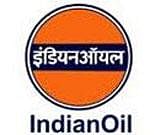
"Based on current price levels in the international oil market, the desired increase in the retail selling prices of petrol in a market like New Delhi should have been Rs 3.72 per litre.
However, IOC has chosen to soften the impact on the customer by increasing the price by Rs 2.50 a litre (from January 16)," the company said in a statement here.
The IOC said it has not passed on the balance required increase of Rs 1.22 per litre.
"Even during the previous revision of the price of petrol with effect from December 16, 2010, as against the required increase of Rs 4.90 per litre in the price at New Delhi, the actual increase was confined to Rs 2.96 a litre thus leaving a gap of Rs 1.94 per litre in anticipation of a likely fall in the price levels in the global oil market," it said.
However, with the persistent rising trend in the global oil prices, average prices of the Indian crude basket have gone up from USD 87.83 per barrel during the earlier petrol price revision in December to the current level of USD 92.31 a barrel.
"Average global prices of petrol during the same period have gone through an even higher increase of USD 5.17 per barrel, rising from a level of USD 95.30 a barrel to USD 100.47 per barrel," IOC said.
It said state fuel retailers continue to lose heavily on diesel, domestic LPG and kerosene, rates of which have not been revised since June last year.
They are losing Rs 7.65 per litre on diesel, Rs 19.60 a litre on kerosene and Rs 366.28 per 14.2-kg cylinder.
"IOC is currently incurring an under-realisation (revenue loss) of about Rs 159 crore per day on the sales of these three sensitive products," the statement said.
The gross under-realisation for the year 2010-11 is projected to be as high as Rs 40,600 crore for IOC (Rs 73,600 crore for all the PSU OMCs).
"The current increase in the retail selling price of petrol was absolutely warranted and necessitated in the context of the above scenario," IOC added.